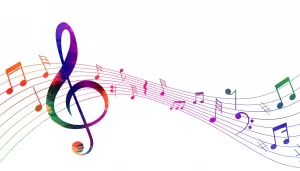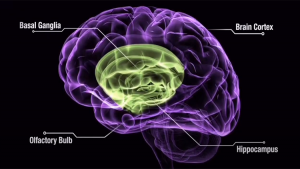It has long been known that music has a great influence on the development of the intellect and feelings, but recently scientists have wondered about its direct impact on the development of the brain. Since ancient times, wealthy (and not only) people have tried to introduce their children to the world of organized sounds. What is music? This is the ordered movement of sound waves of a certain frequency. When several people play together, there is a feeling of auditory effect of harmony and fusion of notes that can sound in unison, make chords or other harmonies. All together forms a certain composition, which has a direct and indirect influence on the human sensory sphere, but in addition, the brain, while listening, develops neural connections, which can then be used by other systems of perception and action. Simply put, a person becomes more receptive, developed, reacts faster and more correctly. Having trained the brain on music, it can become more successful in complex industries – logistics, psychology. Let us consider the main mechanisms of this process.

Musical brain development
The human brain is very complex and less than 5% has been studied, however, we can already say something with certainty. Modern studies have shown that the motor area of the brain is formed within 6-8 years, and it is at this time that it is recommended to start active music lessons with the child. The fact is that a musical instrument helps to develop coordination of the fingers, and, consequently, to develop the sensory areas of the brain.
Classes with keyboards (grand piano, piano), strings (guitar, violin) or wind instruments (flute) allow a little person to become more confident in all his movements. In addition, the beginning of active classes is associated with listening to simple music especially for kids, which means that the child is more likely to get interested in music. In addition, if an individual perceives art, then it is likely that he will subtly feel the tone of the conversation and the direction of the intonations of other people, and therefore have a higher emotional intelligence, the importance of which has recently been increasingly recognized.

Right hemisphere and left hand
It often happens that the baby is taught to take a spoon or toys with his right hand; if it works out, the parents are immensely happy. But they forget about the left hand, which is connected to the right hemisphere of the brain, which is responsible for imagination, feelings, and creative thinking. When a person learns to play an instrument from a young age, he develops fine motor skills of his left hand, which favorably affects the development of his creative qualities. It is very simple to give an example: when playing the guitar (and any other strings), chords are clamped with the left hand, solos and melodies are played. The right hand is responsible for the rhythmic component of the composition: it sets the fight, makes “pinches”. Of course, the child will not become ambidexterous, but playing music will help him sufficiently stimulate such an important right hemisphere and compensate for the uneven use of hands in our right-handed world.
Frontal lobes
The frontal lobes are very important, as they are responsible for controlling human behavior. Almost all intellectual processes are controlled by this part of the brain. Measured music lessons teach a person to discipline. Numerous surveys were conducted in different countries of the world, which showed that children who study music from childhood are more disciplined, manageable, adapt better to society, are more successful and in demand in society. It should be noted that the frontal lobes are especially involved in self-composing music, which is not at all as difficult as it seems to parents or even classical teachers.
